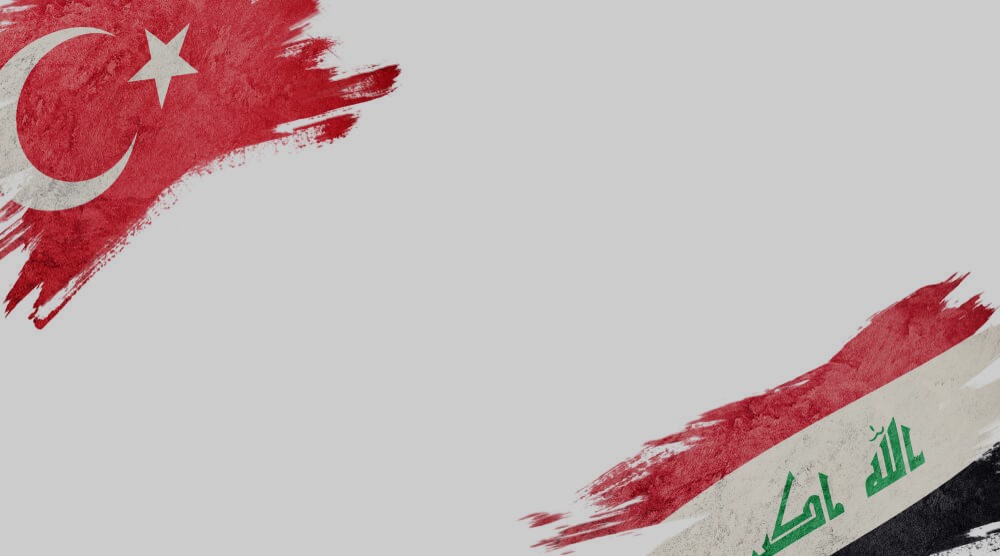Will oil exports from northern Iraq be resumed? All eyes are on the possibility of an agreement between the Iraqi federal government and the Kurdistan Regional Government (KRG) on Monday to resume exports.
Turkeye stopped the flow of oil through the pipeline from the fields of Kirkuk in the semi-autonomous northern province to the port of Ceyhan on March 25, after losing a lawsuit brought by Baghdad before the arbitration panel of the International Chamber of Commerce.
In the merits of the lawsuit, Iraq accused Turkeye of violating the 1973 pipeline agreement by allowing the KRG to export oil without Baghdad’s consent between 2014 and 2018.
The KRG has been exporting oil via its pipeline to the Fish Khabur area on Iraq’s northern border, where oil enters Turkeye and is pumped to the Turkish port of Ceyhan on the Mediterranean coast.
read: Iraqi government revises exchange rate to the US dollar
Iraq’s federal government says state-owned oil marketing company SOMO is the only body authorized to manage crude exports through Ceyhan port.
In 2014, Iraq filed an arbitration case before the Paris-based International Chamber of Commerce (ICC) to consider Turkeye’s role in facilitating oil exports from Kurdistan without the approval of the federal government in Baghdad.
The quantities that used to flow through the pipeline to the Turkish port of Ceyhan, about 450,000 barrels per day, represent only about 0.5 percent of global oil supply, but the stoppage that forced oil companies operating in the region to halt production or transfer it to quick-filling storage tanks last week helped push oil prices to nearly $80 a barrel. /
The failure to resolve the dispute quickly also causes serious losses to the Iraqi oil sector. According to official figures released at the end of the week, the average Iraqi crude oil exports for March exceeded three million and 255 thousand barrels per day. This means that as the dispute continues, Iraq is losing 450,000 barrels per day of its production.
Iraq is the second largest oil producer in the Organization of the Petroleum Exporting Countries (OPEC).
The initial agreement between the two sides stipulates that oil from northern Iraq will be jointly exported by the state-owned Oil Marketing Company (SOMO) and the Kurdistan Regional Government’s Ministry of Natural Resources, Reuters quoted two of the sources, a senior Iraqi oil sector official and a KRG official, as saying.
The KRG official said the revenues would be deposited in an account run by the Ministry of Natural Resources and overseen by Baghdad.
According to the two sources, the initial agreement was referred to Iraqi Prime Minister Mohammed Shia al-Sudani for final approval. The KRG source expected the agreement to be ratified on Monday.
According to trade sources, the Kurdistan region, after suspending its oil exports, stopped paying six billion dollars through oil shipments owed to it to several energy companies, including “Vitol” and “Petraco”.
On the Turkish side, the Energy Ministry said in a statement that the International Chamber of Commerce ordered Iraq to pay compensation to Ankara in the arbitration case.
The Turkish statement said the chamber recognized the majority of Turkey’s demands, without disclosing the amount of compensation.
Sources familiar with the conflict believe that the solution is through the enactment of the oil and gas law by the Iraqi parliament, in cooperation with Baghdad and Erbil.
Zainab al-Moussawi, a member of the House of Representatives’ Oil, Gas and Natural Resources Committee, revealed a few days ago the date for the enactment of the oil and gas law in parliament.
She told the Iraqi News Agency that “there is an agreement between Baghdad and Erbil to legislate the federal oil and gas law,” noting that “the House of Representatives will work on legislating it during the coming legislative semesters.”
The oil and gas law has been awaiting legislation in parliament since 2005 and stipulates that responsibility for managing the country’s oil fields should be vested in a national oil company, overseen by Baghdad. However, disagreement over the management of the Kurdistan Region of Iraq’s oil fields has prevented it from being voted on for many years, as the law has been carried over many times during previous parliamentary sessions and has not been included in parliamentary laws and legislations.
For more on energy, click here.




